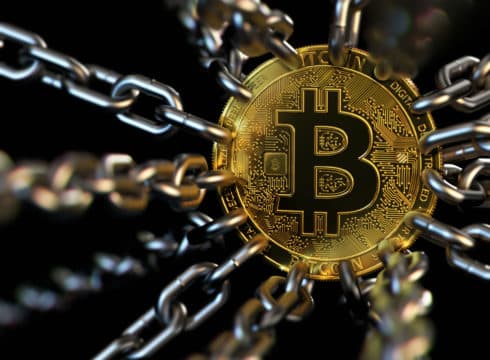The draft bill proposes banning cryptocurrency-related activities in India
Heavy penalty and punishment of up to 10 years jail has also been proposed
Govt has neither introduced the draft bill in the parliament nor has it publicly acknowledged it
Inc42 Daily Brief
Stay Ahead With Daily News & Analysis on India’s Tech & Startup Economy
Spread over eight chapters, six parts and 27 clauses, the draft called Banning of Cryptocurrency & Regulation of Official Digital Currency Bill 2019 leaked this week thanks to blockchain lawyer Varun Sethi. And yes, as reported earlier, it proposes a jail term of one to 10 years for those who mine, hold, transact or deal with cryptocurrencies in any form, whether directly or indirectly through an exchange or trading.
But before looking at the contents of the draft, it is worth noting that it has neither been endorsed nor released by the Indian government, hence the authenticity and finality of the draft is open to questions.
India’s Definition Of Cryptocurrency
Strangely, the word ‘cryptocurrency’ in the 18-page Draft Bill has been defined as any information or code or number or token not being part of any official digital currency, generated through cryptographic means or otherwise, providing a digital representation of value which is exchange with or without consideration, with the promise or representation of having inherent value in any business activity which may involve risk of loss or an expectation of profits or income, or functions as a store of value or a unit of account and includes its use in any financial transaction or investment, but not limited to, investment schemes.
This clearly separates cryptocurrency from digital rupee and digital foreign currencies. The definition seems to be targeting digital currencies not backed by any central banks. However, in contrast, according to the Australian Anti-Money Laundering and Counter-Terrorism Financing Act, cryptocurrency is defined as a type of currency that only exists in digital rather than physical form (not coins or notes, for example) and can be exchanged for goods, services or physical currency and is not issued by or under the authority of a government.
Similarly, the amended Financial Instruments and Exchange Act of Japan categorises and recognises cryptocurrencies as crypto-assets observing that the term “currency” as potentially misleading in the context of referring to all cryptocurrencies.
[aesop_document type=”pdf” src=”https://inc42.com/wp-content/uploads/2019/07/417445633-Alleged-Draft-of-Banning-of-Crypto-Currency-Regulation-of-Official-Digital-Currency-Bill-2019-India.pdf” caption=”Click Here To View The Complete Draft”]
Banning Cryptocurrency And The Exceptions
While Part I, as discussed defines cryptocurrencies, Part II of the draft directly jumps to the prohibition. It says,
No person shall mine, generate, hold, buy or sell or deal in, issue, transfer, dispose of or use cryptocurrency in the territory of India.
The draft clarifies that certain terms will not apply to any person using technology or processes underlying any cryptocurrency for the purposes of experiment or research including education provided that no cryptocurrencies are used for making or receiving payment in such activity.
It also clarifies that any law would not target blockchain or the use of Distributed Ledger Technology (DLT) for creating a network for delivery of any financial or other services or for creating value, without involving any use of cryptocurrency for making or receiving payment.
According to the latest estimates, over a million Indians are still directly involved in cryptocurrency trading and related activities. The draft bill does not delve into the details of the disposal of the same. Once the bill gets enacted, how are people supposed to dispose of their cryptocurrencies? Especially when nobody in India would be allowed to buy the same.
While the draft is yet to be released officially, it reflects the belief of the Indian government regarding cryptocurrencies. The government had earlier likened cryptocurrency to Ponzi schemes and clarified its stance stating that Bitcoin or other cryptocurrency is neither real currency as they are not legal tender nor assets as they are not backed by any physical attributes.
Amid rising uproar over the leaked and reported draft bill, the Indian government which recently in parliament had stated that the draft Bill is still under development, one can expect changes in some of the proposed regulations in the final draft. The crypto startup ecosystem would be hoping that any revised draft would present a better understanding of the market, and stringent regulation instead of a ban on cryptocurrencies in India.
{{#name}}{{name}}{{/name}}{{^name}}-{{/name}}
{{#description}}{{description}}...{{/description}}{{^description}}-{{/description}}
Note: We at Inc42 take our ethics very seriously. More information about it can be found here.


